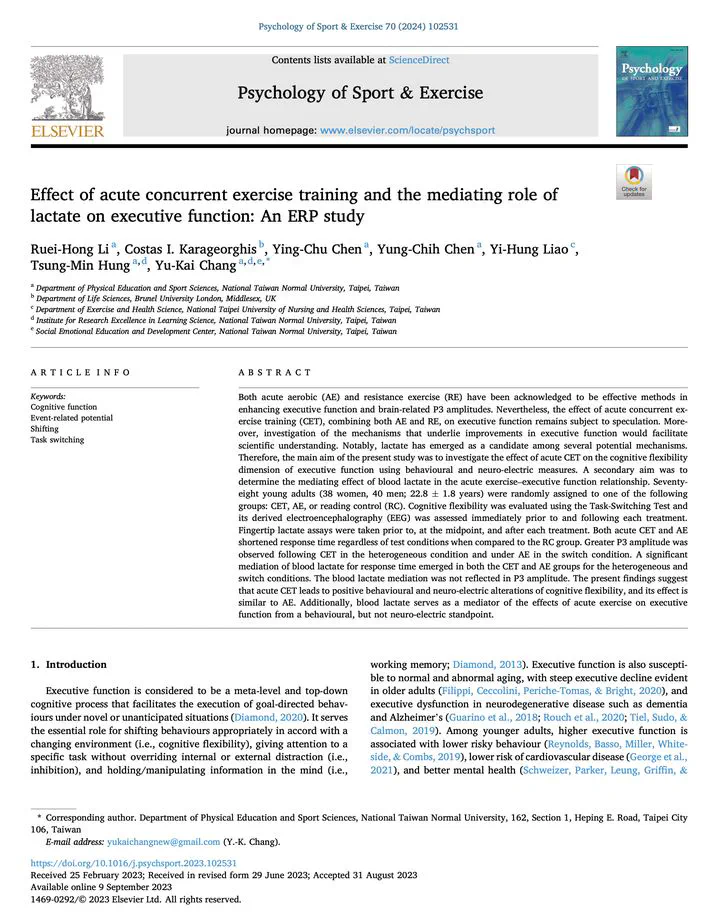Effect of acute concurrent exercise training and the mediating role of lactate on executive function: An ERP study
Sep 9, 2023·
,
,
,
,
,
,
·
0 min read
Ruei-Hong Li
Costas I. Karageorghis
Ying-Chu Chen
Yung-Chih Chen
Yi-Hung Liao
Tsung-Min Hung
Yu-Kai Chang
 Image credit: Ruei-Hong Li et al.
Image credit: Ruei-Hong Li et al.
Abstract
Background: Both acute aerobic (AE) and resistance exercise (RE) have been recognized for their benefits in enhancing executive function and brain-related P3 amplitudes. However, the cognitive effects of acute concurrent exercise training (CET), which combines AE and RE, are less understood. Furthermore, lactate has been proposed as a potential mechanism linking exercise to cognitive improvements.
Methods: Seventy-eight young adults (38 women, 40 men; mean age = 22.8 ± 1.8 years) were randomly assigned to one of three groups: CET, AE, or a reading control (RC). Participants underwent pre- and post-tests of cognitive flexibility using a Task-Switching Test and event-related potentials (ERPs), while fingertip blood lactate was assessed before, during, and after each session.
Results: Both CET and AE significantly reduced response times across all task conditions compared to RC. ERP analysis revealed greater P3 amplitude following CET in the heterogeneous condition and under AE in the switch condition. Blood lactate levels significantly mediated the effects of CET and AE on response time, but not on P3 amplitude.
Conclusion: Acute CET produces behavioral and neuro-electric enhancements in cognitive flexibility similar to AE. Lactate appears to mediate behavioral improvements in executive function, though not the associated ERP changes. These findings provide insight into the underlying physiological mechanisms of exercise-induced cognitive enhancement.
Type
Publication
In Psychology of Sport & Exercise